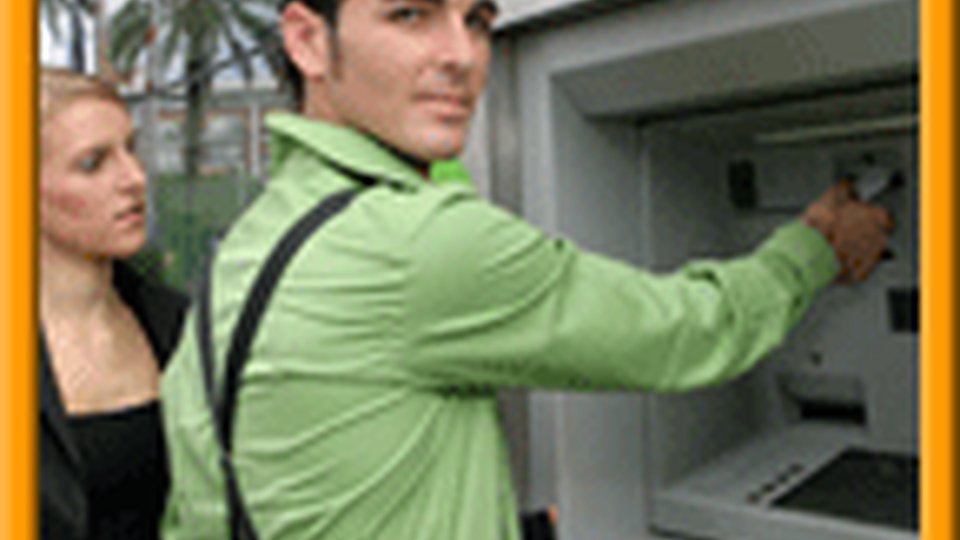ATMIA spearheads grassroots push for more ATM surcharging in U.S.
In the wake of Visa's recent decision to allow U.S. ATM deployers to levy a surcharge on international cardholders, the industry looks to ATMIA for strong ATM-surcharging support at the state level.
February 15, 2009
In November, U.S. ATM operators got a nod from Visa to start imposing a surcharge on ATM transactions conducted by international cardholders. But the lift of Visa's ban could be fruitless if MasterCard doesn't follow suit.
"It's something we've been waiting on for quite some time," said Doug Falcone, chief operating office of Access to Money, an independent ATM deployer that operates 12,000 ATMs throughout the U.S. Access to Money merged with Portland-based TRM Corp. in April 2008. "I'm cautiously optimistic. This would be a nice win."
Since the advent of ATM surcharging in the United States in April 1996, ATM operators have reaped profits for providing U.S. consumers convenient access to cash. But for providing that same convenient cash access to international cardholders using ATMs in the United States, the profits have not existed. While Visa and MasterCard lifted their surcharging bans on U.S. cardholders, they did not lift surcharging bans on international cardholders. It's a surcharging disconnect that U.S. ATM deployers have been fighting for the last decade.
ATM operators say they see surcharges as compensation for the services they provide. But the Visa victory could be a hollow one if MasterCard refuses to follow suit. In its agreement to lift the ban in April 2009 to allow U.S. ATM operators to surcharge international cardholders, Visa states that imposed surcharges cannot exceed what other card networks charge. That means that if MasterCard refuses to play ball, ATM operators will be back to square one, at least where rules directed from Visa and MasterCard are concerned.
"While we have been enacting legislation in various states that will supersede or override the network rule, we have also been formally requesting the networks to reconsider their rule and grant an exemption to the rule for all non-bank owned ATMs in the U.S., " said Lana Harmelink, chief operating officer of the
ATM Industry Association. "Our request was stated this way (since) the U.S. ATM market is decidedly different than anywhere else in the world. In the U.S., most off-premise ATMs are owned by non-financial entities. In many instances, if not most, these non-financial entities are not large business, and without exception, these entities, many of whom are our members, operate ATMs not as an ancillary operation, but as a self-sustaining business."
So far, MasterCard has not commented about a possible change to its surcharging rules.
Leaping the ATM hurdle: A pass from the states
Industry advocates, such as ATMIA, have for years been bypassing Visa and MasterCard by pursuing legislative changes that affect ATM surcharging at the state level. And while Harmelink is hopeful that MasterCard will consider a surcharging rule change by the summer, she says ATMIA will continue its grassroots fight at the state level.
Last year, ATMIA helped push legislation in 21 states, including California, Louisiana, New York, Florida, Georgia, Alabama, Hawaii and Wisconsin, that allows U.S. ATMs to charge international cardholders for cash withdrawals. The next target states will be those that benefit from international tourism, such as New Jersey, North Dakota and possibly Massachusetts, Harmelink says.
But the state battle has been a narrow win for
independent sales organizations, Falcone says. In the absence of a MasterCard rules change, Falcone says the ideal solution would be federal legislation that allows surcharging international cardholders. But that battle would likely be a long fight, he says.
And then there is the interchange-fee issue, which for years, ISOs say, has favored the financial institutions at the expense of the ISOs.
All ATM transactions are subject to interchange, which varies by card issuer and is divided between the card issuer, the network and the transaction acquirer. And the amount of interchange each piece gets varies on a number levels, depending on the ATM network's size, transactions per machine, etc. Ultimately, ISOs argue, FIs are at an advantage, because their networks tend to be larger and their per-ATM-transaction volume is typically higher. Domestically and internationally, the interchange model is even more skewed, Harmelink says, since ATM operators overseas are awarded by Visa and MasterCard a higher percentage of the interchange pie than their domestic counterparts.
"Denying these non-financial ATM owners/operators the ability to assess a surcharge on U.S. ATM transactions initiated by an international cardholder requires those owners/operators to provide a valuable service to a customer with little, if no, resulting revenue," Harmelink said.
Visa's breakdown
Visa adjusted its interchange model to reflect its newfound willingness to allow surcharging international cardholders at U.S. ATMs. On cash transactions for international cardholders where no surcharge is levied, the interchange fee will increase from the $1 rate to $1.25. When a surcharge is included, the interchange for those same transactions will drop from the $1 rate to 50 cents per transaction.
Jacob Bennett is the full-time editor of Self-Service World and Kiosk Marketplace, sister sites to ATM Marketplace. To submit a comment about this article,e-mail the editor. Included In This Story
The ATM Industry Association, founded in 1997, is a global non-profit trade association with over 10,500 members in 65 countries. The membership base covers the full range of this worldwide industry comprising over 2.2 million installed ATMs.
Request Info
Learn More














